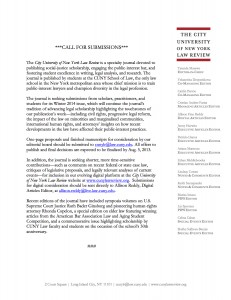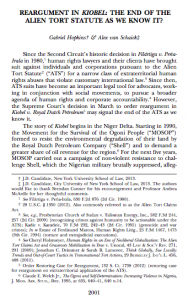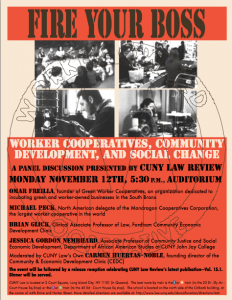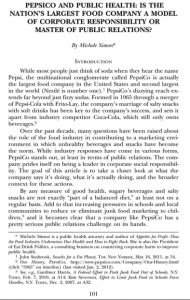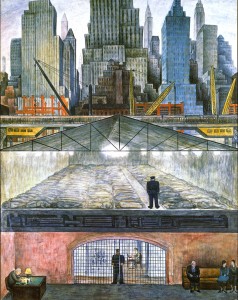Explore the digital version of Volume 15.2, our symposium issued entitled “Looking Forward: Rhonda Copelon’s Legacy in Action and the Future of International Women’s Human Rights Law.”
Introduction
Looking Forward: An Introduction to the Symposium Issue by Lauren K. Dasse, City University of New York School of Law Class of 2012 and Editor-in-Chief of CUNY Law Review, 2011–2012
Reflections
Looking Forward: Rhonda Copelon’s Legacy in Action by Cathy Albisa, Executive Director and co-founder of the National Economic & Social Rights Initiative (NESRI)
Legacy in Action: Honoring the Life Work of Rhonda Copelon by Lisa Davis, Clinical Professor of Law in the International Women’s Human Rights (IWHR) Clinic and advisor to the Law Review at the City University of New York School of Law
Rhonda Copelon: A Celebration of a Life Fully Lived by Charlotte Bunch, Founding Director and Senior Scholar of the Center for Women’s Global Leadership at Rutgers University and Distinguished Professor in Women’s and Gender Studies
Remembering Rhonda by Peter Weiss, Vice President of the Center for Constitutional Rights
Selected Remarks
“Crucial as Bread”: Remembering Rhonda Copelon’s Pioneering Work by Yifat Susskind, Executive Director of MADRE
Roadmap to a Bolder Future: Rhonda Copelon’s Legacy by Vincent Warren, Executive Director of the Center for Constitutional Rights
Creating Legacy Today: The First LGBT Ruling by the Inter-American Court of Human Rights by Jessica Stern, Executive Director of the International Gay and Lesbian
Human Rights Commission (IGLHRC)
Living the Legacy of Rhonda Copelon by Andrea J. Ritchie, police misconduct attorney, organizer, and current coordinator of Streetwise & Safe
Reproductive Rights at Home and Abroad by Nancy Northup, President of the Center for Reproductive Rights
Change Is Possible: The Law as a Barrier and a Tool by Marianne Møllmann, Senior Policy Advisor at Amnesty International
Rape in a Post-Disaster Context: Evolving Jurisprudence of the Inter-American Commission by Blaine Bookey, Associate Director and Staff Attorney at the Center for Gender & Refugees Studies at the University of California, Hastings College of the Law
Rape as a Form of Torture: The Experience of the Committee Against Torture by Felice D. Gaer, M.A., M.Ph., Vice Chair of the U.N. Committee Against Torture and Director of the American Jewish Committee’s Jacob Blaustein Institute for the Advancement of Human Rights
Surfacing Rhonda by Pam Spees, Senior Staff Attorney at the Center for Constitutional Rights
The Challenge of Domestic Implementation of International Human Rights Law in the Cotton Field Case by Caroline Bettinger-Lopez, Associate Professor of Clinical Legal Education and Director of the Human Rights Clinic at the University of Miami School of Law
Articles
The Case of Karen Atala and Daughters: Toward a Better Understanding of Discrimination, Equality, and the Rights of Women by Rosa M. Celorio, Human Rights Specialist and Attorney, Special Rapporteurship on the Rights of Women, Inter-American Commission on Human Rights; Professional Lecturer in
Law, George Washington University Law School
Hyde-Care for All: The Expansion of Abortion-Funding Restrictions Under Health Care Reform by Cynthia Soohoo, Director of the International Women’s Human Rights (IWHR) Clinic, CUNY School of Law
Note
Recalibrating After Kiobel: Evaluating the Utility of the Racketeer Influenced and Corrupt Organizations Act (“RICO”) in Litigating International Corporate Abuse by Julian Simcock, J.D. Candidate, Stanford Law School; M.P.P. Candidate, Harvard Kennedy
School, 2013
Public Interest Practitioner Section (PIPS)
The Public Defender as Anti-Trafficking Advocate, an Unlikely Role: How Current New York City Arrest and Prosecution Policies Systematically Criminalize Victims of Sex Trafficking by Kate Mogulescu, Staff Attorney in the Criminal Defense Practice of the Legal Aid Society of New York

